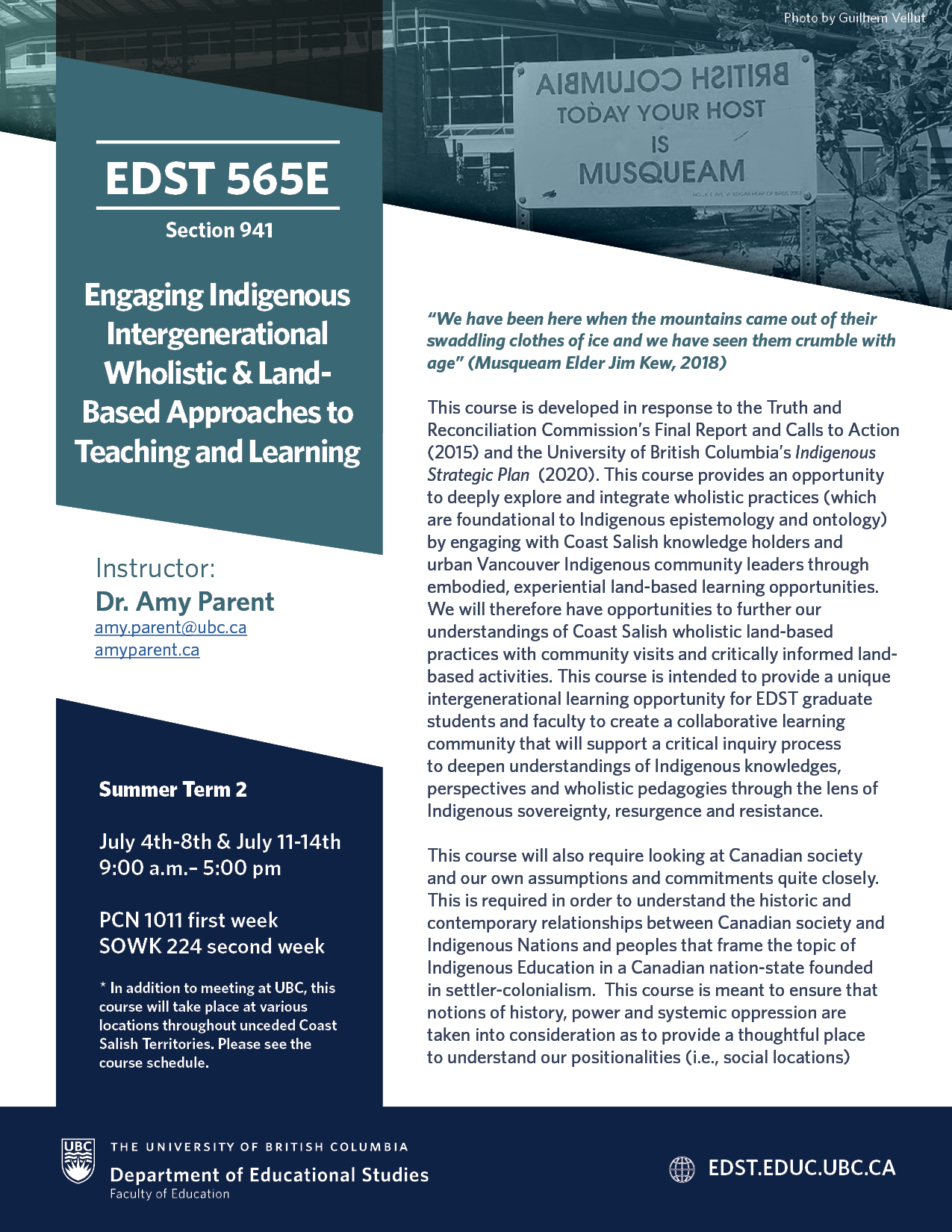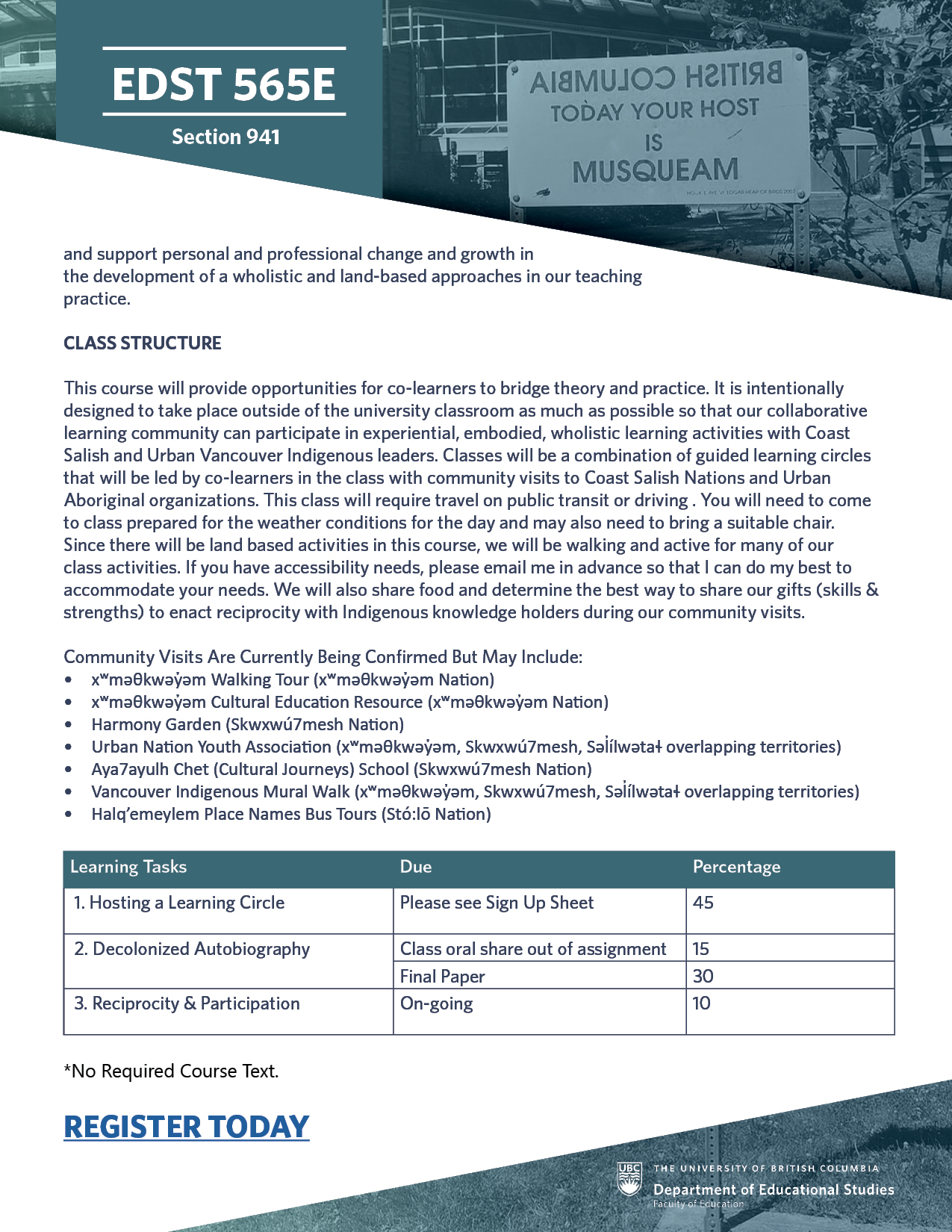Download course info PDF Register today!
This course is developed in response to the Truth and Reconciliation Commission’s Final Report and Calls to Action (2015) and the University of British Columbia’s Indigenous Strategic Plan[1] (2020). This course provides an opportunity to deeply explore and integrate wholistic practices (which are foundational to Indigenous epistemology and ontology) by engaging with Coast Salish knowledge holders and urban Vancouver Indigenous community leaders through embodied, experiential land-based learning opportunities. We will therefore have opportunities to further our understandings of Coast Salish wholistic land-based practices with community visits and critically informed land-based activities. This course is intended to provide a unique intergenerational learning opportunity for EDST graduate students and faculty to create a collaborative learning community that will support a critical inquiry process to deepen understandings of Indigenous knowledges, perspectives and wholistic pedagogies through the lens of Indigenous sovereignty, resurgence and resistance.
This course will also require looking at Canadian society and our own assumptions and commitments quite closely. This is required in order to understand the historic and contemporary relationships between Canadian society and Indigenous Nations and peoples that frame the topic of Indigenous Education in a Canadian nation-state founded in settler-colonialism. This course is meant to ensure that notions of history, power and systemic oppression are taken into consideration as to provide a thoughtful place to understand our positionalities (i.e., social locations) and support personal and professional change and growth in the development of a wholistic and land-based approaches in our teaching practice.

